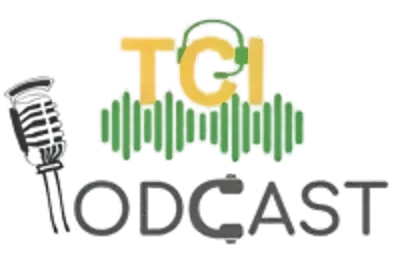 Blog Summary: Is Transcription the Right Career for You? 10 Key Reasons to Consider Before Enrolling
Blog Summary: Is Transcription the Right Career for You? 10 Key Reasons to Consider Before Enrolling
Thinking about a career in transcription? While it offers flexibility and independence, it may not be the right fit for everyone. From challenges like managing tight deadlines, dealing with different accents, and maintaining attention to detail, to the need for specialized equipment and self-discipline, there are several factors to consider before making the leap. Explore whether transcription suits your strengths and interests before enrolling in a training program.
Transcription is often regarded as a rewarding profession, offering flexibility and the opportunity to work from home. However, like any career, it’s not for everyone. Whether you’re considering transcription as a full-time career or a side hustle, it’s important to assess if this profession truly fits your lifestyle, skills, and expectations.
Here are 10 reasons transcription may not be the right career for you.
1. You Struggle with Typing Speed and Accuracy
Transcription jobs require a significant amount of typing. If you’re not confident in your typing skills, transcription might not be the best fit. While some transcriptionists start at slower speeds, accuracy and speed are essential for meeting deadlines and maintaining productivity. Most professional transcriptionists aim for a speed of 60-80 words per minute (WPM), and anything less may lead to frustration.
2. You Have Difficulty Understanding Accents or Dialects
Transcription work often requires listening to audio recordings with varying accents or dialects. If you struggle to understand different pronunciations, this could result in misinterpretations and low-quality work. High-quality transcription services demand accurate and precise transcription, so if accents are a challenge, this job may not be right for you.
3. You Can’t Handle Repetitive Tasks
Transcription can be highly repetitive. You will often listen to audio recordings of similar formats, such as meetings, interviews, or medical dictations. If you’re someone who thrives on variety or needs constant mental stimulation, the repetitiveness of transcription may become monotonous and unengaging.
4. You Don’t Have the Right Equipment
While transcription doesn’t require a lot of physical resources, it does require specialized equipment. This includes a good quality headset, transcription software, and possibly a foot pedal. If you aren’t willing to invest in this equipment or don’t have a comfortable workspace to work for extended hours, transcription might not be ideal.
Also Read: Which Transcription Tools and Software Should I Learn?
5. You Don’t Have a Strong Attention to Detail
Transcription requires excellent attention to detail. Whether you’re transcribing audio for legal, medical, or general purposes, every word matters. Missing a single word or misinterpreting a phrase can lead to errors. If you don’t have the patience or focus to carefully listen to and transcribe audio, this may not be the right profession for you.
6. You Can’t Meet Tight Deadlines
Transcription jobs often come with strict deadlines. Some projects require rapid turnaround times, and if you’re someone who struggles with time management or working under pressure, transcription might become stressful. Being able to transcribe accurately and quickly is a skill that develops over time, but it’s not for everyone, especially if meeting deadlines causes anxiety.
7. You Don’t Have Good Listening Skills
A huge part of transcription work is being able to listen attentively and accurately. Whether you’re transcribing interviews, court proceedings, or business meetings, you need to be able to listen to audio that might include background noise, overlapping speech, or unclear audio. If you find it difficult to focus on listening for long periods or struggle with hearing issues, transcription might not be the best fit.
8. You Don’t Enjoy Working Independently
While transcription offers great flexibility, it also means working alone for long stretches of time. If you thrive on social interaction and working in team environments, you might find the solitary nature of transcription to be isolating. Transcriptionists need to be self-motivated and disciplined to maintain consistent work output, which might not appeal to everyone.
9. You Are Uncomfortable with Different Subject Matters
Transcription can cover a wide variety of topics, including legal, technical, or business-related content. If you’re not comfortable with or interested in these areas, transcription work could become less enjoyable. It’s important to be willing to learn about new subjects and adapt to different fields, especially if you plan on offering specialized transcription services.
10. You’re Looking for High-Earning Potential Right Away
Although transcription can be a profitable career for some, it’s not a quick path to high earnings. It may take time to gain the experience, speed, and efficiency necessary to make substantial money. If you’re looking for an immediate high income, transcription might not provide the financial rewards you’re hoping for initially. Many transcriptionists start with lower pay and increase their income as they improve their skills and efficiency.
Final Thoughts
Transcription offers flexibility and independence, but it’s not for everyone. If you find that you resonate with several of the reasons listed above, this profession may not align with your strengths or expectations. However, for those who enjoy typing, have an eye for detail, and are willing to learn, transcription can be a rewarding and fulfilling career.
If you’re ready to begin your transcription career, the Transcription Certification Institute offers the training and guidance you need to master your skills and succeed in the field.
Enroll Now
 Blog Summary: Is Transcription the Right Career for You? 10 Key Reasons to Consider Before Enrolling
Blog Summary: Is Transcription the Right Career for You? 10 Key Reasons to Consider Before Enrolling















